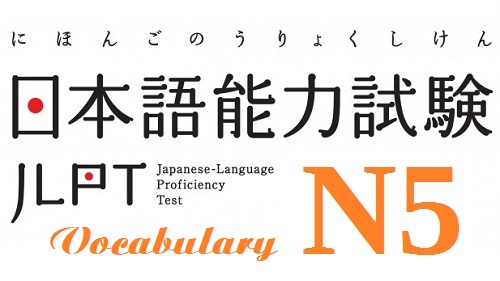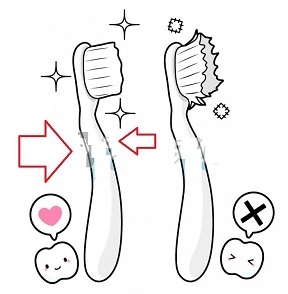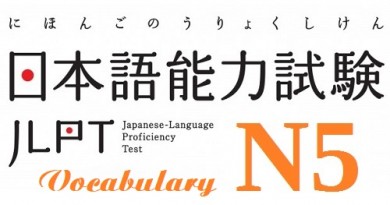Japanese JLPT N5 vocabulary 3
Hi, in order to make it easier for you to study Japanese JLPT level N5. In this post, we will introduce you Japanese JLPT N5 vocabulary 3. you can see the first lesson here : Japanese JLPT N5 vocabulary
Japanese JLPT N5 vocabulary 3 – Explaination

31. あく (aku) : (the door) open (intransitive verb). Kanji :開く. example : まどが開 (a) いてますよ. The window is still open ! そのお店 (mise) は7時 (ji) から開 (a) きます That shop is open from 7.00.

32. あさごはん (asagohan) : breakfast. rice for the morning. Example : あさごはんをたべません. i don’t have breakfast
33. あした(ashita) : Tomorrow. Kanji :明日. example : あしたはにちようびです、やすみのひです. Tomorrow is sunday – a day off
34. あさって (asatte) : the day after yesterday. Example : あさって、かのじょとあいました. I met her the day before yesterday.

35. あそこ (asoko) : overther. example : これはわたしのかばんです。あなたのかばんはあそこです This is my bag, your bag is overthere

36. あたらしい(atarashii) : New. はなちゃんはわたしのあたらしいともだちです. Hana is my new friend.
37. あちら(achira) : overthere (formal)

38. あつい(atsui) : thick. このじしょはあついです. This dictionary is thick
39. あと(ato) (noun): after, afterwards. Ex : ほんをよみました、そのあと, ねました. i read book, afterthat, i went to bed

40. あの(ano) : That… (Go with noun which is far from both speaker and listener). There must be a noun go after あの. Example : あのかばんはかわいですね。 That bag is so cute, isn’t it!
41. あの(ano) : uhm, ah… (speak to get attension from listener). This word is usually used when speaker want the listener to listen to what speaker start to say, or is used when the speaker pause and think of what to say next. Example : あの…ペンをかしてもいいですか。uhm… can you lend me your pen?
42. あまり(amari) : not… really, not… much. あまり is used in Negative Sentences. Example : ここでひとがあまりいません。There are not so much people here.

43. あめ(ame) : Candy. Example : このあめはあまいですね。This candy is so sweet.

44. ある(aru) : have/ there are (possesion). Example : わたしはおおきいかばんがある。I have a big bag.

45. あれ(are) : That thing/things which is far from both speaker and listener. Example : あれはおもしろいですね。 That thing is so interesting
Obove is Japanese JLPT N5 vocabulary lesson 3. See more similar posts on category : JLPT N5 vocabulary. Learn Japanese daily hope these posts well help you learn Japanese online easier

34. あさって- day after tomorrow
Thanks Mary, i fixed it !